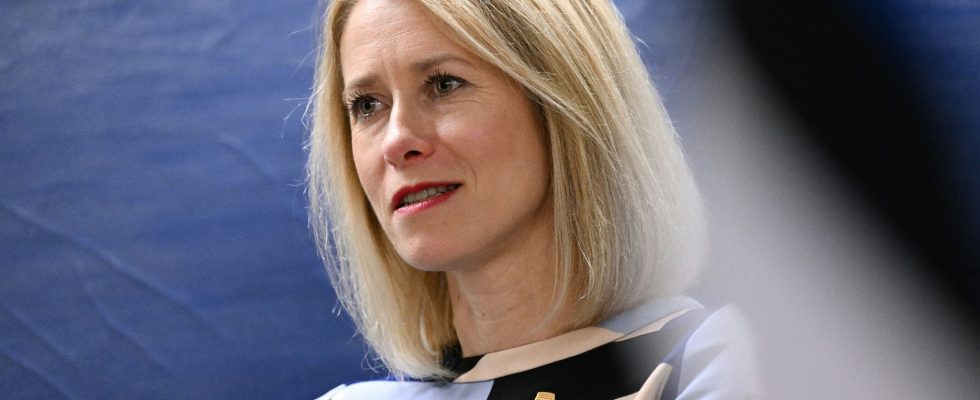While the Ukrainian troops are losing ground and $60 billion in aid is still blocked in the American Congress, the 27 leaders of the European Union are meeting in Brussels this Thursday March 21 and Friday March 22. How to help Ukraine win the war? How to rearm Europe as quickly as possible? The head of the Estonian government, a member of the same political family as Emmanuel Macron, gave an interview to several European media including L’Express.
L’Express: Is the French president right not to want to rule out sending ground troops to Ukraine?
Kaja Kallas: For once, we are sowing doubt in the Russian camp about what we could do. Until now, we had mostly been transparent about what we were not going to do. Strategic ambiguity is a good thing, because we must not forget that the Russians fear waging war on NATO. In my Parliament, I also refused to promise that we would not send any Estonian soldiers to Ukraine. The only person who would need this information is Vladimir Putin! Remember, in 2022, a week before the invasion, Joe Biden suggested that nothing would happen in the event of a minor Russian incursion into Ukraine. The Russians told themselves they could take action.
If Ukraine loses to Russia, what is the risk for Estonia?
The danger for Estonia is the same as for your country. There are no first or second class allies in NATO. We are all equal. Europe is such a small continent… everything spreads very quickly. The history of the Second World War reminds us of this, even if at the time Poland did not last as long as Ukraine does today. If Ukraine falls, all of Europe will be threatened. Certainly, today, Russia would not dare to go to war with NATO. But in a few years, if we don’t invest enough in defense, they will no longer be afraid of us.
How can we convince public opinion that we need to invest more?
For leaders who have more peaceful neighbors than ours, it is not easy to explain this to their population. In peacetime, there are so many other emergencies on which taxpayers’ money must be spent. But the day we have to react militarily, it is already too late to invest in defense. I had to explain to my people that I was increasing taxes to supplement the army budget. For a liberal like me, it’s very difficult. I am committing political suicide but I have no choice. I don’t want us to regret not having invested enough in a few years.
You proposed a large European loan of 100 billion euros to finance the rise of the defense industry. Are your counterparts following you?
We will not have a result on this during this European summit. We are taking small steps. I discussed it this week with the German Chancellor [NDLR : l’Allemagne est hostile à l’idée d’un nouvel endettement commun]. We must find solutions that are acceptable to all. I am open to other avenues than Eurobonds but the fact remains that we need public and private money. Among 14 countries, we have just written to the European Investment Bank to ask it to finance the arms sector. In Estonia, many start-ups have innovative technological projects for which they are unable to raise funds.
Russia has switched to a war economy despite European sanctions. Are they ineffective?
The Russians want us to believe that they are ineffective and that they are doing more harm to us than to them. We have information that shows us that this is false. The Russian budget shows a deficit of 20%. However, Russia cannot raise capital from abroad because of sanctions and the Chinese do not lend it money: how will it finance the war machine in the long term? Then they found buyers for only 5% of the gas they previously sold to Europe. Finally, the Russian central bank’s interest rate has risen to 15%, which gives an idea of the prospects it imagines for the national economy…
However, should more be done, particularly to avoid circumvention of the measures put in place?
We can always do more. I have a list of suggestions. We could set quotas on certain European goods or technologies intended for third countries. This would ensure that these exports do not end up in Russia. For example, if Kyrgyzstan begins to import significantly more European cars, it is probably not because its inhabitants have suddenly become so rich that everyone owns ten cars per family.
Your name comes up regularly for a position in Brussels. Are you interested?
I have several times publicly regretted that no position of responsibility – in NATO or in the European Union – is occupied by a man or woman from Eastern Europe. But today I am Prime Minister of Estonia and therefore I am not a candidate for any position.
.
